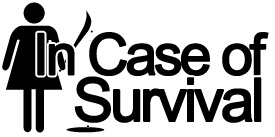 [1.Provided for review by Open Road]
[1.Provided for review by Open Road]
Considered one of the great dystopian novels-alongside Anthony Burgess’s A Clockwork Orange and Aldous Huxley’s A Brave New World-Ira Levin’s frightening glimpse into the future continues to fascinate readers even forty years after publication.
The story is set in a seemingly perfect global society. Uniformity is the defining feature; there is only one language and all ethnic groups have been eugenically merged into one race called “The Family.” The world is ruled by a central computer called UniComp that has been programmed to keep every single human on the surface of the earth in check. People are continually drugged by means of regular injections so that they will remain satisfied and cooperative.
They are told where to live, when to eat, whom to marry, when to reproduce. Even the basic facts of nature are subject to the UniComp’s will-men do not grow facial hair, women do not develop breasts, and it only rains at night.
With a vision as frightening as any in the history of the science fiction genre, This Perfect Day is one of Ira Levin’s most haunting novels.
Grade: DNF
The trouble with classics and parents of a genre is that they often use tropes that are very common to the modern reader, or tropes that are outright nauseating due to values dissonance. Even if these things were acceptable and new when the book was written, a modern audience may struggle.
I struggled with this book. It’s not that I’m a girl with no love for the classics and no ability to look beyond the demands or the era in which a book was written- I’m probably one of the few people who reads classic literature for fun.
I just… really stuggled with this one.
It’s not that it’s bad, it’s just I’ve seen this concept a dozen times before.
Admittedly, by books written later, but a lot of these later books deal with concept with more complexity.
And I was seriously bothered by the undercurrent of misogyny in this book. In the 70’s sci fi was very much a boys club, no girls allowed, and this book reeks of it. I am very unappreciative of the rape means love, trope, people, and that’s the point I gave up.
There may have been good, in-story and in-character reasons, with all our characters being emotional fuck ups due to the way the world has worked – after they’ve been freed from the drugs, everyone little more than children, having never had the painful experiences of adulthood – but it’s one of the things I just can’t stomach. You may do better.
The writing is fairly simplistic, which actually works very well for the world and story. The characters are believable if not especially complex.
I’m sure it’s brilliant. These things usually are. But in this case, I just couldn’t do it.
Despite my inability to finish it, I’d suggest you at least give it a try, like you should try reading all the original books from a genre. You may not be able to appreciate them, but you can at least see where these books get their tropes.

I’ve recently been trying to read more older/classic scifi, and sometimes the sexual/racial politics can be quite off putting. I read Heinlein’s Sixth Column and found that the blending of arcane racial/sexual mores with high tech hard to deal with Yet, I also read the classic Dystopian novel We by Yevgeny Zamyatin, which is considered the precursor to 1984 and Brave New World, and although written in 1921, had one of the strongest female characters I’ve read in a while. So, I guess it’s a give an take.
Some books are really ahead of their time in this regard, but most are… not. And while sometimes I can overlook the nauseating, archaic attitudes sometimes it just overwhelms me and WHOOPS I can’t finish the book. Even in a book I really like and don’t want to finish reading it drags me out of the story for some mental re-adjustment. I do this with Lovecraft, basically repeating ‘He was a horrible racist even for his time but that doesn’t stop this being a good book and reading it doesn’t mean I agree with him’ while I read.